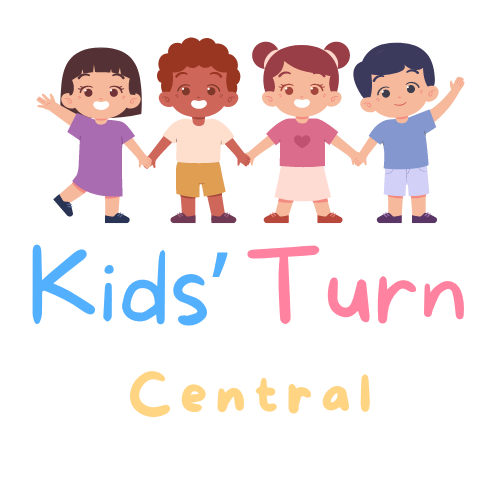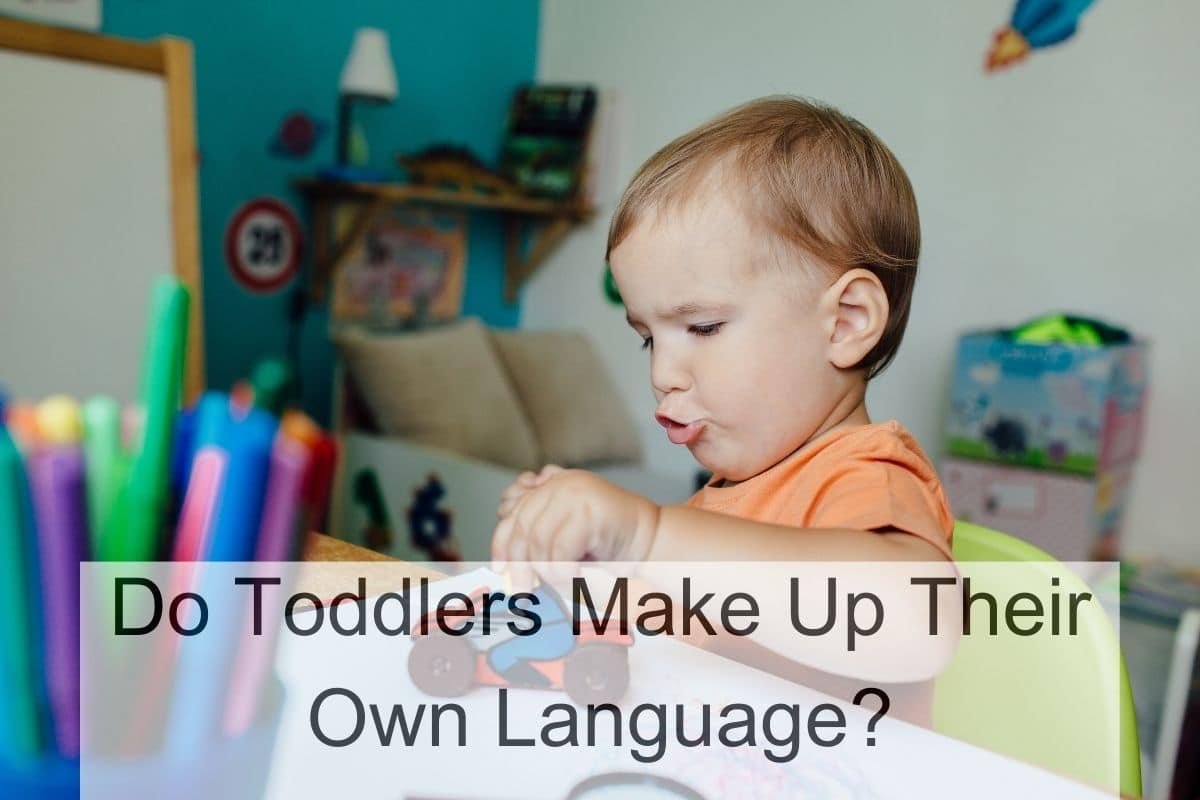As a parent, I have often wondered if my toddler is speaking a language that only she understands. It’s not uncommon for toddlers to babble and make sounds that are unintelligible to adults. But do toddlers make up their own language?

According to a study by The Thoughtful Parent, toddlers do develop their own individual language and grammar rules. The study analyzed over 60 hours of conversation between 2 and 3-year-olds and their parents and found that toddlers use a variety of sounds, gestures, and expressions to communicate. This gibberish talk, or “jargon,” often comes with a range of emotions and expressions, making it seem like they’re speaking an unknown language fluently.
While some of the sounds that toddlers make may sound like made-up words, they are actually part of their language development process. As children learn to communicate, they experiment with different sounds and combinations of sounds, eventually forming words and sentences. So, while it may seem like toddlers are speaking their own language, they are actually in the process of learning to speak our language.
Understanding Toddler Language Development

As a language model, I don’t have the ability to speak, but I do know that toddlers go through various stages of language acquisition. Here are some of the stages of language acquisition that toddlers go through:
Stages of Language Acquisition
- Prelinguistic Stage: During this stage, infants communicate through crying, cooing, and babbling. Infants start making sounds as early as two months old, and by six months old, they start babbling.
- One-Word Stage: At around 12 months old, toddlers start saying their first words. These words often represent common objects or people in their lives, such as “mama” or “dada.”
- Two-Word Stage: At around 18 to 24 months old, toddlers start combining words to form two-word phrases, such as “more juice” or “bye-bye daddy.”
- Telegraphic Speech Stage: At around 24 to 30 months old, toddlers start using short sentences that include only essential words, such as “want cookie” or “go park.”
Role of Babbling in Language Development
Babbling is an essential part of language development for toddlers. During the prelinguistic stage, infants start making sounds that eventually turn into babbling. Babbling helps infants learn how to control their vocal cords and make different sounds. As they continue to babble, they start to recognize the sounds that are associated with their native language. This recognition helps them develop language skills and eventually start speaking.
Characteristics of Toddler-Created Languages

As a language model, I can tell you that toddlers have their own way of communicating. Here are some of the characteristics of the language that they create:
Vocabulary Invention
Toddlers create their own words for things that they don’t know the name of yet. They might call a car a “vroom-vroom” or a dog a “woof-woof.” These words might not make sense to adults, but they are perfectly understandable to other toddlers.
Grammar and Syntax Patterns
Toddlers also create their own grammar and syntax patterns. They might say things like “me do it” instead of “I will do it” or “mine toy” instead of “that toy is mine.” These patterns might seem incorrect to adults, but they are consistent within the toddler’s language.
Consistency and Rules
Toddlers are consistent in their language creation. They will use the same words and patterns repeatedly, and they will expect others to understand them. They might even correct adults who use the “wrong” word or pattern.
Reasons Toddlers Create Their Own Language

As a parent, you may have noticed your toddler babbling away in their own language. While it may sound like gibberish to you, there are actually several reasons why toddlers create their own language.
Expression of Creativity
Toddlers are naturally creative and imaginative. One way they express this creativity is through their own language. By making up words and sounds, they are exploring the boundaries of language and communication. This is an important part of their development as they learn to express themselves in new and creative ways.
Cognitive Development
Creating their own language is also a sign of cognitive development. Toddlers are constantly learning and absorbing new information about the world around them. By creating their own language, they are practicing the rules of language and grammar. This helps them develop their cognitive skills and prepare for more complex language tasks in the future.
Social Interaction and Play
Finally, creating their own language is a way for toddlers to engage in social interaction and play. When they play with other children, they may use their own language to communicate and interact with each other. This helps them develop social skills and build relationships with others.
Parental and Caregiver Responses

As a caregiver, it’s essential to encourage language development in toddlers. Encouragement can come in the form of talking and reading to the child, singing songs, and even playing games that involve language. It’s important to speak to the child in a clear, slow, and concise manner, using simple words and sentences that are easy to understand.
Recognizing and decoding toddler language can be challenging, but it’s essential to try to understand what they’re saying. Toddlers often use gestures, sounds, and facial expressions to communicate. It’s important to pay attention to these cues and try to decipher what they mean. It’s also helpful to repeat what the child says to confirm that you’re interpreting their language correctly.
If you’re struggling to understand your toddler’s language, it may be time to seek professional advice. A speech therapist can help determine if there are any underlying issues that may be causing language delays. They can also provide guidance on how to encourage language development and improve communication between you and your child.
Impact of Bilingualism on Toddler Language Creation
As a language model, I do not have personal experience with toddlers, but research shows that toddlers exposed to bilingual environments may create their own language. This phenomenon is called autonomous language creation, and it is a natural process that occurs when toddlers are exposed to multiple languages simultaneously.
Code-Switching and Language Mixing
Toddlers in bilingual environments may mix languages in a single sentence, a phenomenon called code-switching. Code-switching can be a sign of cognitive flexibility and may help toddlers communicate more effectively with bilingual caregivers. However, it is important to note that code-switching is not the same as autonomous language creation.
Autonomous language creation occurs when toddlers combine elements of different languages to create a new language. This process is different from code-switching because the resulting language is not a mixture of two or more languages but a new language with its own rules and grammar.
Benefits of Bilingual Environments
Research suggests that bilingualism has several benefits for toddlers, including cognitive flexibility and improved problem-solving skills. Bilingualism may also delay the onset of cognitive decline in later life.
Comparing Toddler Language to Constructed Languages
When we think of constructed languages, we often think of languages like Esperanto or Klingon. These are languages that have been intentionally created, often for specific purposes like ease of communication or entertainment. But did you know that toddlers also create their own languages?
Toddlers’ language development is a natural process that occurs as they learn to communicate with the people around them. As they learn new words and grammar rules, they begin to use language to express their thoughts and feelings. This process can be compared to the creation of a constructed language in some ways.
Like constructed languages, toddler language is often simplified and lacks the complexity of a fully developed language. Toddlers may use made-up words or phrases to communicate their ideas, much like constructed languages use new words or grammar rules to convey meaning. However, unlike constructed languages, toddler language is not intentionally created, but rather a natural part of their language development.

